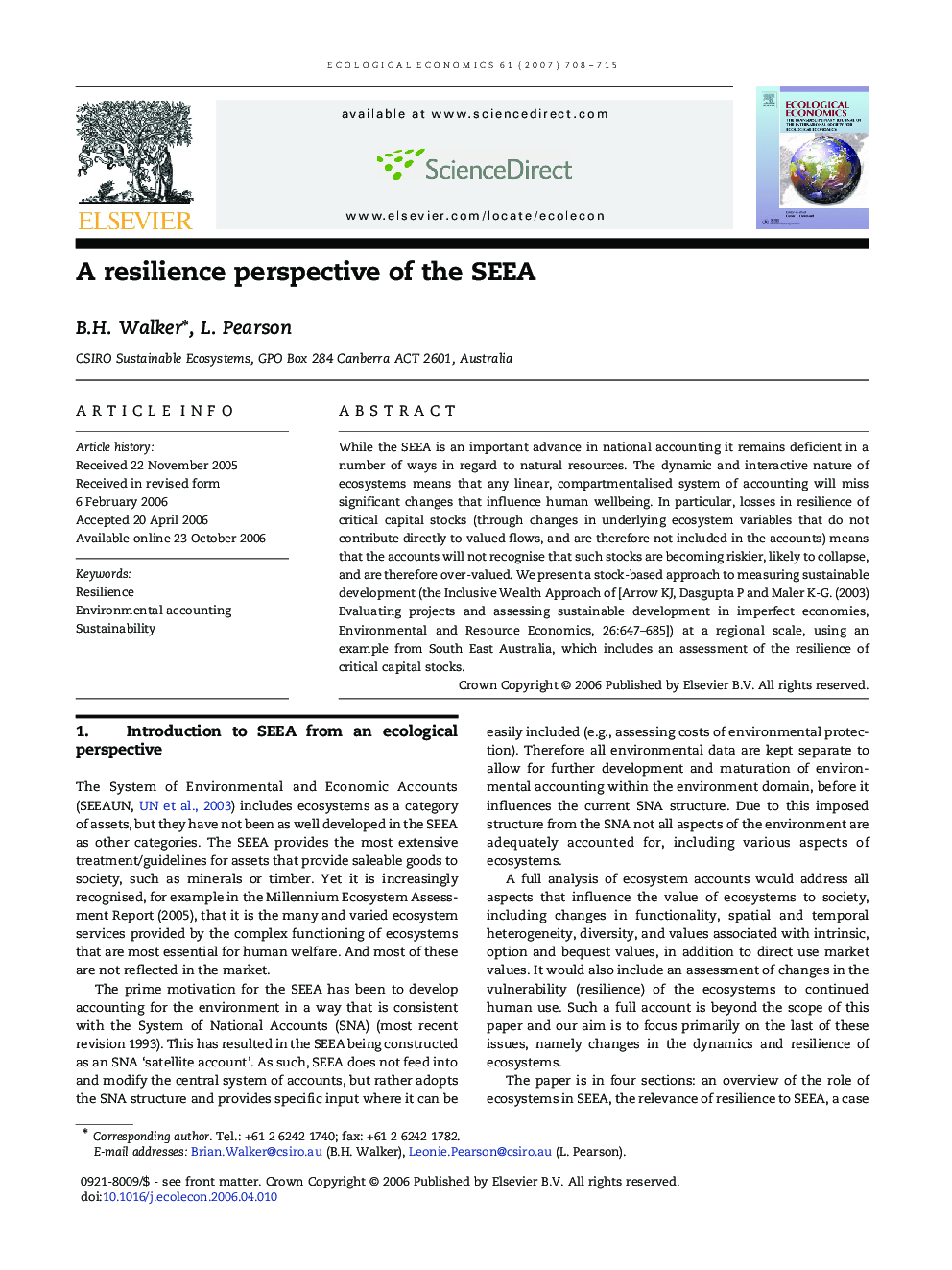| Article ID | Journal | Published Year | Pages | File Type |
|---|---|---|---|---|
| 5051826 | Ecological Economics | 2007 | 8 Pages |
Abstract
While the SEEA is an important advance in national accounting it remains deficient in a number of ways in regard to natural resources. The dynamic and interactive nature of ecosystems means that any linear, compartmentalised system of accounting will miss significant changes that influence human wellbeing. In particular, losses in resilience of critical capital stocks (through changes in underlying ecosystem variables that do not contribute directly to valued flows, and are therefore not included in the accounts) means that the accounts will not recognise that such stocks are becoming riskier, likely to collapse, and are therefore overâvalued. We present a stockâbased approach to measuring sustainable development (the Inclusive Wealth Approach of [Arrow KJ, Dasgupta P and Maler KâG. (2003) Evaluating projects and assessing sustainable development in imperfect economies, Environmental and Resource Economics, 26:647-685]) at a regional scale, using an example from South East Australia, which includes an assessment of the resilience of critical capital stocks.
Related Topics
Life Sciences
Agricultural and Biological Sciences
Ecology, Evolution, Behavior and Systematics
Authors
B.H. Walker, L. Pearson,
